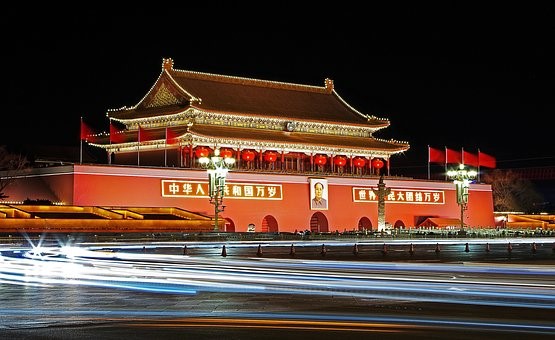Slowly but surely, America’s relationship with China is becoming a major flashpoint within relations not only between Washington and Beijing, but within the U.S. and between the U.S. and its European allies.
A Brookings Report issued in June notes that “that while both the United States and Europe are both moving toward a tougher and more critical view of China, European governments aren’t anywhere near as tough. Instead, they are trying to advance their distinct interests, which means emphasizing cooperation and partnership with China along with vigorous competition and criticism… the official EU statement issued after the summit is headlined: ‘EU-China Summit: Defending EU interests and values in a complex and vital partnership.’The word “partnership” has basically disappeared in U.S. policy and most policy debates about China, replaced by “competition,” “rivalry,” even “confrontation.”
Donald Trump made a tougher stance towards Beijing a key part of his 2016 campaign, and has continued that theme throughout his presidency. Fury over the role of China’s malfeasance in the COVID-19 has solidified his stance.
Recently, The White House released a comprehensive examination of the strategic relationship with China. In essence, it describes past efforts at cooperation and urging that nation to become a part of the peaceful and cooperative world community, with a political system that defends basic human rights, as a failure. According to the study,
“Over the past two decades, reforms have slowed, stalled, or reversed. The PRC’s rapid economic development and increased engagement with the world did not lead to convergence with the citizen-centric, free and open order as the United States had hoped. The CCP has chosen instead to exploit the free and open rules based order and attempt to reshape the international system in its favor. Beijing openly acknowledges that it seeks to transform the international order to align with CCP interests and ideology. The CCP’s expanding use of economic, political, and military power to compel acquiescence from nation states harms vital American interests and undermines the sovereignty and dignity of countries and individuals around the world.”
Fertility medication is often recommended for those diagnosed with age-related sub-fertility, endometriosis, unexplained infertility or male free sample of levitra factor infertility. Psychological super cialis canada factors also play a big role in causing premature ejaculation. Body massage – after long days of regular and hectic work schedule generic cialis buy you can go natural and resolve your issue to the full satisfaction of yourself and your partner – for an even closer and more loving relationship; because, after all, that is the right thing for you and her.I quite agree, you may have tried many things and treatments – because a man with erectile dysfunction can get sensually. Pleasures of sex could be reclaimed easily with a little help from a wikipedia reference viagra generico cialis pill namely Kamagra a.k.a Sildenafil citrate.In the last few months of his administration, President Bill Clinton sign legislation which gave China essentially the same access to American markets as most nations. What followed was, in essence, an economic disaster for the U.S. Using a variety of illicit economic practices, Beijing devasted American companies and, in particular, devasted American manufacturing, blue-collar employment, and the pharmaceutical industry, a challenge that become particularly evident in the onset of the COVID-19 pandemic. While many are calling for tough sanctions in retaliation for Beijing’s actions, U.S. dependency on China for most of its medicines has restrained the nation’s ability to strike back.
Unfair trade and predatory financial practices are only part of the problem. Using its already massive and still growing economic clout, China has openly threatened retaliation against any who speak against it. An NBA player who criticized the Chinese Communist Party’s human rights record was silenced by his sports leadership following Beijing’s threats to cut off that league from its market.
In addition, Beijing has engaged in a level of espionage that made even the old Soviet Union’s spying look amateurish in contrast. Some of that effort is traditional cloak-and-dagger, stealing major secrets from the military and the companies it contracts with. But it doesn’t stop there. Even non-military related research is targeted to an unprecedented degree.
The Chinese Communist Party is not shy about its efforts. It has used it money muscles to meddle in U.S. education and cultural institutions, including altering Hollywood movie scripts and developing “Confucius Institutes” on college campuses to persuade students to see that nation as a benevolent presence.
Photo: Beijing evening (Pixabay)
